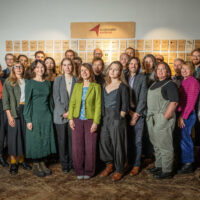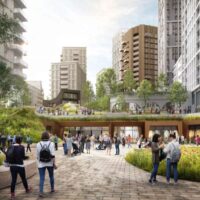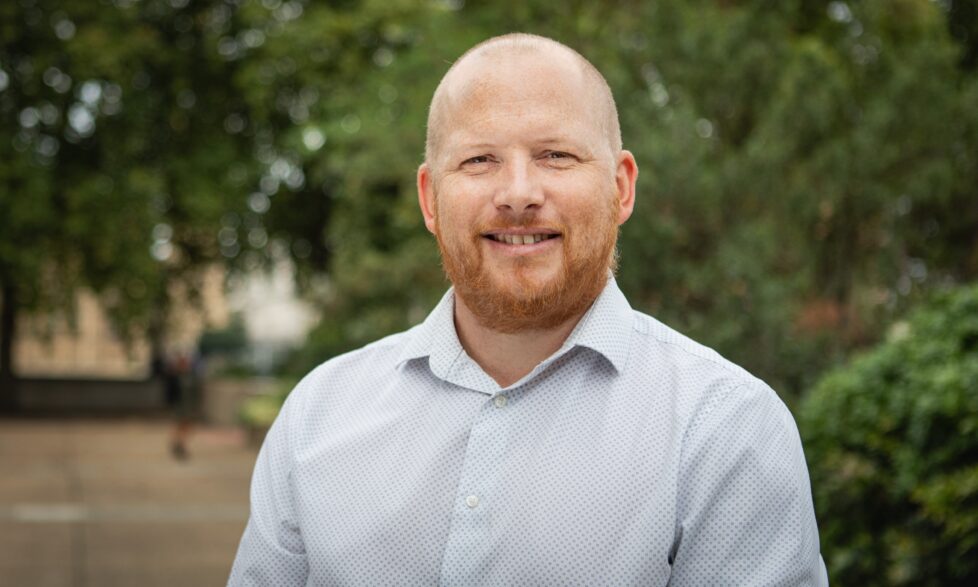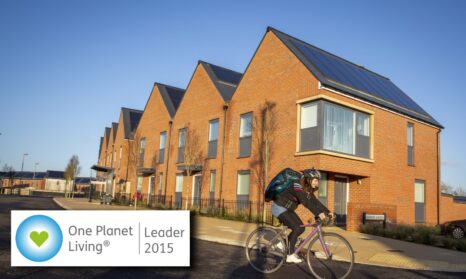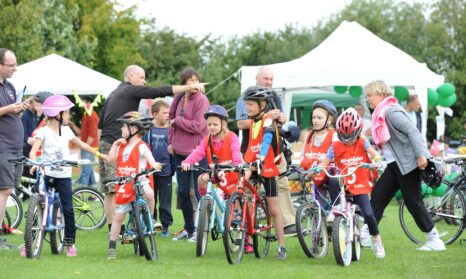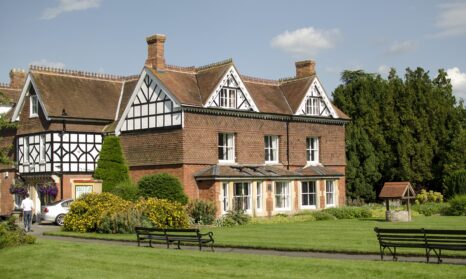Celebrating 10 years with Bioregional
Our Head of Sustainable Places Lewis Knight recently celebrated his ten-year anniversary with Bioregional. In this interview, he reflects on his decade-long journey supporting clients to create more sustainable homes and communities.
What does your role entail at Bioregional?
I lead and manage our brilliant Sustainable Places consultancy team. We work in three key areas to help create net-zero-ready homes and sustainable communities: newbuild (advising developers and land promotors from conception and visioning stages through to planning, construction, and post-occupancy); planning (working with local authorities to support and enhance sustainability standards within local planning polices); and retrofit (supporting asset owners with the retrofit pathways for their buildings). A key element of my role includes winning new work and building long-term, impactful partnerships and relationships with clients.
What first attracted you to Bioregional, and how did your journey start?
Prior to joining in 2013, I worked for a number of years at the Building Research Establishment (BRE) and before that with a local authority, so I had a strong background in sustainable placemaking. When I saw the opportunity, I remember thinking “these are the people behind BedZED”, which I had studied and visited during my Masters course.
The role was for a project manager in Bioregional’s emerging Oxfordshire team, working on Elmsbrook, the first phase of NW Bicester, the UK’s first eco-town. I was to act as the sustainability ‘standard bearer’, ensuring the eco-town vision was delivered.
Few young professionals get to work on such an exemplary scheme, and I’ve been involved with Elmsbrook ever since. As a consultant, you might work on 30 to 40 projects-per-year, do your bit, and then disappear. You don’t always know what impact you’ve made. With Elmsbrook, I’ve worked on everything from conceptual planning to community engagement, and now post occupancy evaluation. It’s been amazing to see the community take shape.
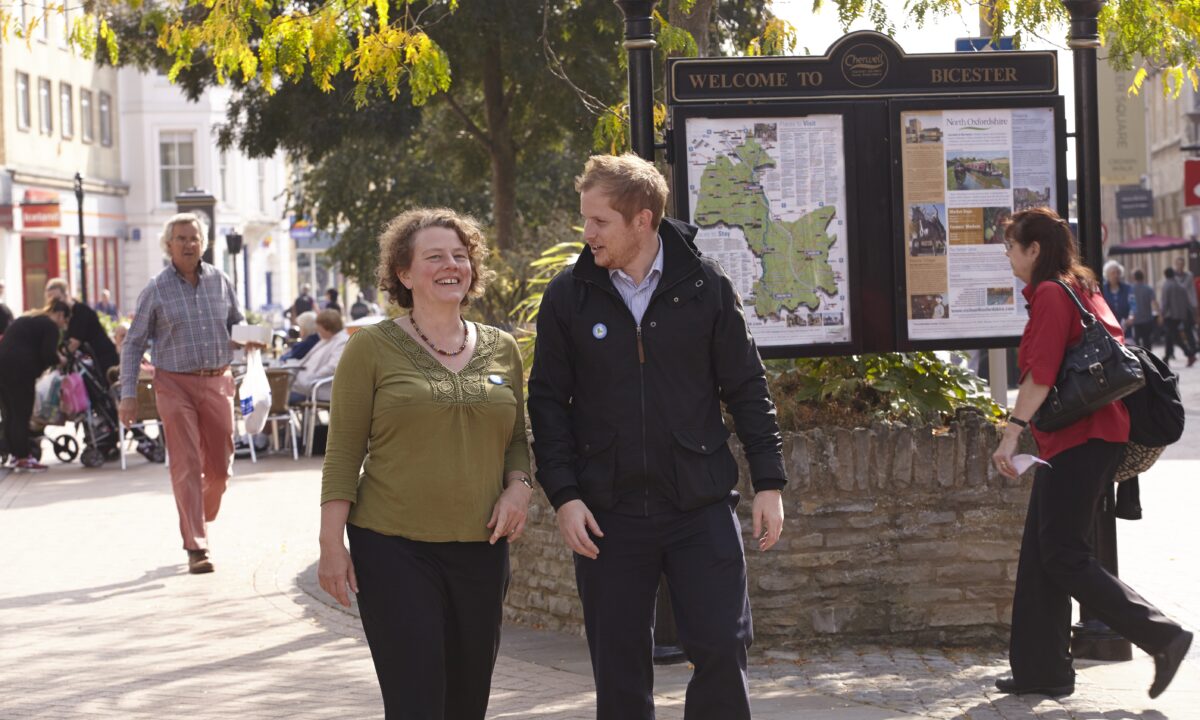
Don’t be afraid to fail – that’s where you grow and learn the most.
How has your career evolved here?
I really threw myself into my role and in time began to work on projects and opportunities outside of Bicester and Oxfordshire and, over the past five to six years, worked much closer with the wider, nationally focused Sustainable Places team. This culminated in me being appointed as the team lead in 2021. This is a huge privilege.
How has Bioregional changed during your time with us?
Environmentalism is far more mainstream than a decade ago. When I joined, there was more of a focus on awareness raising, whereas now we are all about delivery and working with a wide range of clients and partners to bring practical solutions into the mainstream. Our culture, values, and entrepreneurial spirit are the same.
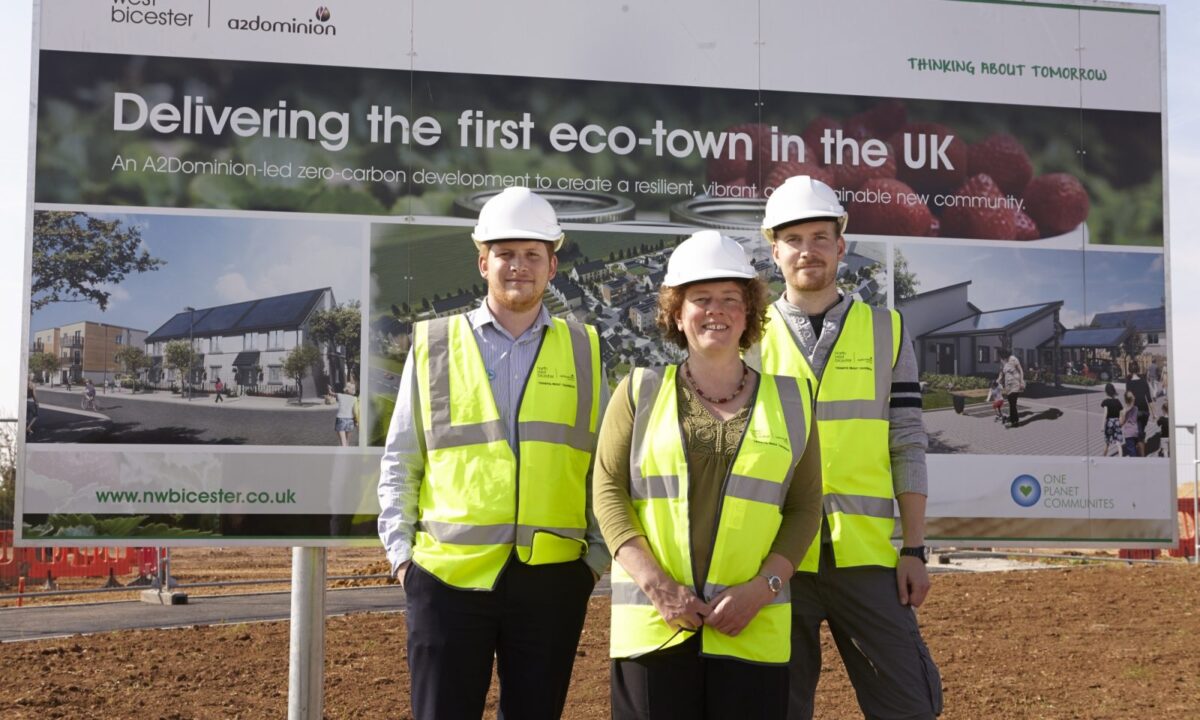
We have a flat hierarchy so if junior staff members have ideas or suggestions, they will always be listened to, supported, and actively encouraged.
What does Bioregional's culture mean to you?
It's a busy, professional environment, but you know you’re doing something good with your day job. We have a flat hierarchy so if junior staff members have ideas or suggestions, they will always be listened to, supported, and actively encouraged.
Bioregional really gives you the building blocks. It’s up to you to use your initiative, but Bioregional will always support you. From those early days in Bicester, we grew into the wider region of Oxfordshire and before we knew it were starting One Planet Oxfordshire and Oxfordshire Greentech – two county-wide programmes and initiatives.
You’re given the opportunity to grow. After being a project manager for four years, I recruited a project officer, who was recently appointed Oxfordshire Greentech’s new CEO. If you’ve got the skills and drive, you will progress here.
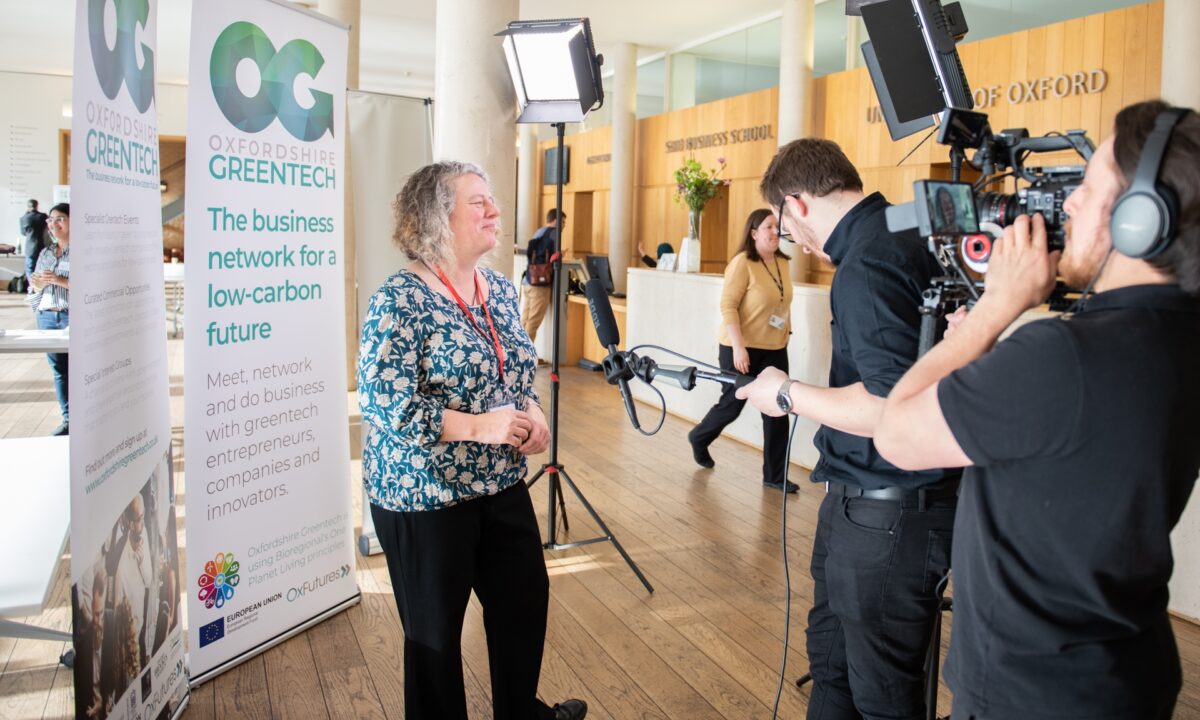
Bioregional really gives you the building blocks. It’s up to you to use your initiative, but Bioregional will always support you.
Personal highlights of your career so far?
Elmsbrook, without a doubt. Few people get the chance to work on a project for 10 years through design, planning application, sustainability strategy, stakeholder engagement, and post-occupancy monitoring stages. I take a lot of pride in speaking about it, especially showing companies and individuals around the site on bespoke tours.
Another highlight is leading the development of Oxfordshire Greentech from just an idea to an EU-funded project, which felt incredibly daunting. We launched back in 2019 with circa-200 attendees, and it’s still going four-and-a-half years later with a growing membership base, showing huge impact and value to the flourishing climate-tech economy in Oxfordshire (and beyond). I’m still a director and Hannah Scott is now at the helm, which to me is the greatest success.
And finally, I feel hugely privileged to lead a team of intelligent and committed people who deliver incredible outputs.

Can you name some team accomplishments you're really proud of?
Becoming go-to consultants for local authorities who want to develop net-zero planning policies. The impact is massive – working with a developer on a development of 200 to 1,000 homes is great, but if you can influence an entire local plan, that’s potentially thousands of homes. I’m really proud of our growing portfolio, such as our work with Warwick, Central Lincolnshire and Cambridge.
We’re also proud of the reputation we have built, which has seen us appointed on strategic developments such as the £1.5bn Mayfield regeneration project in central Manchester, working with partners including the FTSE100 investor LandsecU&I.
And we’re delivering technical outputs such as Rural Community Energy Fund (RCEF) projects, building on our work at Swaffham Prior, an RCEF project in East Cambridgeshire, which is now Britain’s first heat-pump village. It’s amazing to know we helped to kickstart that, and that the community still remembers us. To help more communities to follow in Swaffham Prior’s footsteps is a big highlight.
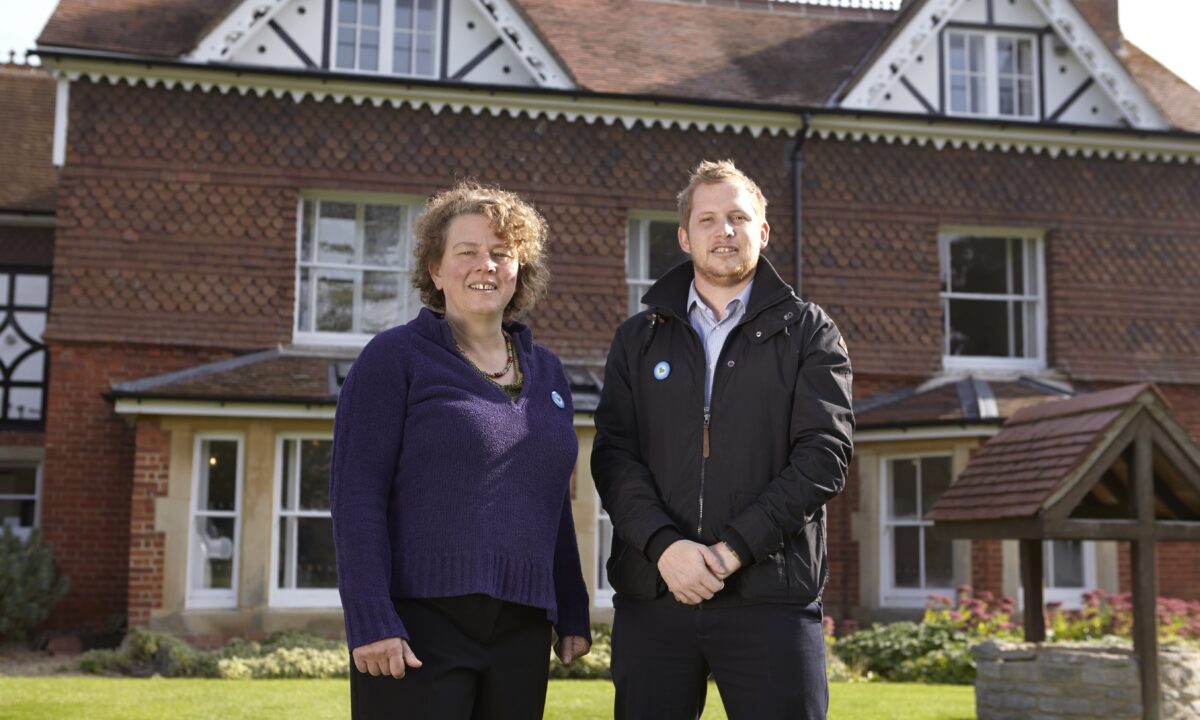
Biggest lessons learnt?
Don’t be afraid to fail – that’s where you grow and learn the most. Don’t be afraid to ask questions. And use your initiative. Bioregional gives people a lot of space to grow, so if you see an opportunity, speak up and make things happen.
What are you looking forward to in the future?
I’m excited about growing our team and scaling up our impact as we diversify our services, particularly around retrofit and the support we give to local authorities. There’s so much work to do to make our homes and communities sustainable, but we know the solutions are in reach. We can’t wait to push on!
Header photograph by Julia Hawkins
